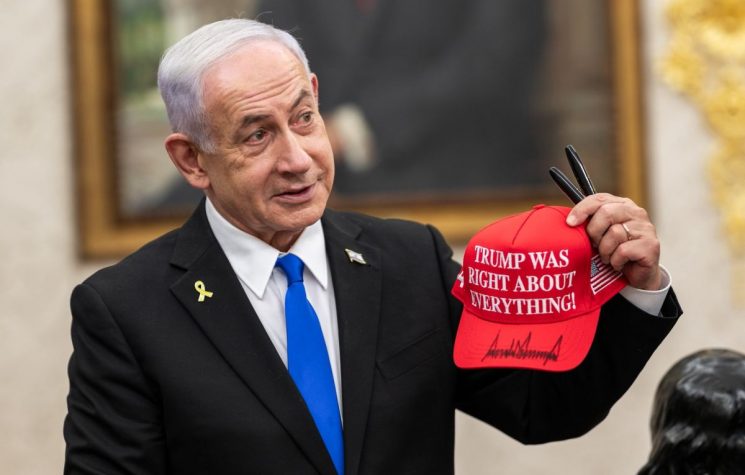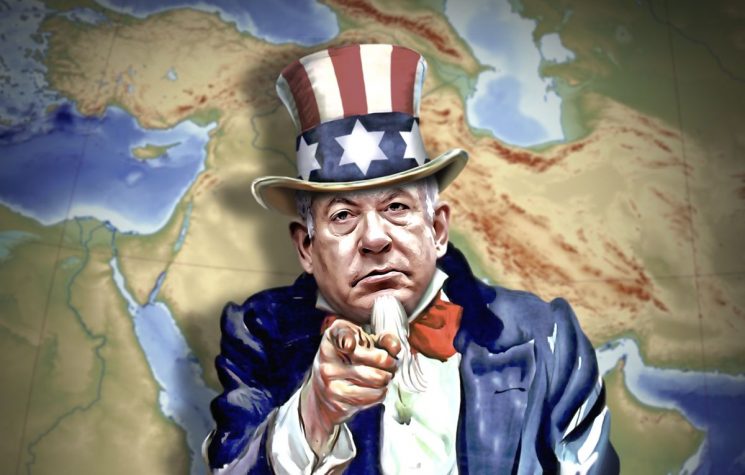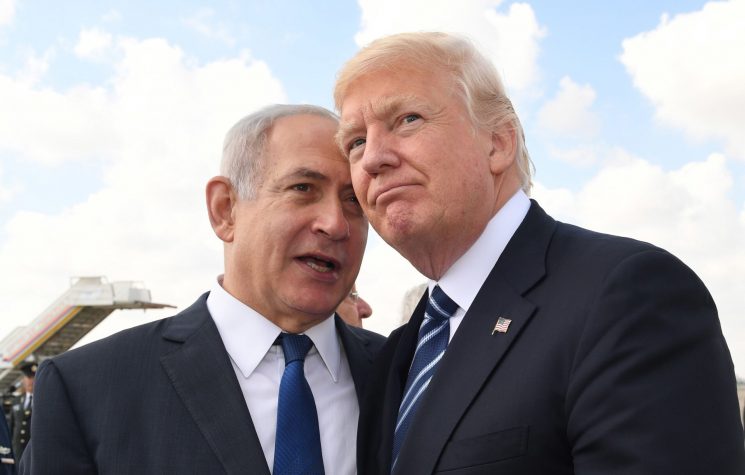What is really unfolding in Iran and what specifically is America’s objective and role in the conflict?
Join us on Telegram![]() , Twitter
, Twitter![]() , and VK
, and VK![]() .
.
Contact us: info@strategic-culture.su
Israel’s recent strike on Iran in many ways was a plan in the making for at least a year, according to many analysts and yet, if we study closely the loathing of Israel and Netanyahu of Iran, it goes back decades. In the mid 90s Bibi published a book which claimed that Iran was three years away from producing a nuclear bomb. Just recently he claimed in a video piece that this is now only one year, or, in his own words, “perhaps even months”.
Yet this notion of Iran actually going ahead with a nuclear bomb which justifies western intervention is weak at best and disingenuous at worse. It’s simply not true and even western media 7 months ago conceded as much.
In October last year, “The United States still believes that Iran has not decided to build a nuclear weapon despite Tehran’s recent strategic setbacks, including Israel’s killing of Hezbollah leaders and two largely unsuccessful attempts to attack Israel”, two U.S. officials told Reuters.
Back then, a senior Biden administration official and a spokesperson for the Office of the Director of National Intelligence (ODNI) added to public remarks by CIA Director William Burns, who said the United States “had not seen any evidence Iran’s leader had reversed his 2003 decision to suspend the weaponization program”.
We can also assume that Trump and his cabal of Iran hawks also have not seen any evidence that the situation has changed, although it is true that recently Tehran was not complying with international weapons inspectors’ requests for access to certain sites.
So what is the real story? What is really unfolding in Iran and what specifically is America’s objective and role in the conflict?
To answer this, we simply have to go back in history which will give us a clue as to how Trump thinks. Trump always looks back and in many ways is living in the past. In the 80s, when President Reagan took office, he, like many after him, were petrified of Iran and its military clout in the region. He was so fearful of the new Islamic regime that he agreed to sell Tehran weapons it needed while assisting groups in Lebanon it was aligned to send packages of heroin into the U.S. on Pan Am flights as a payoff – as a way of ensuring U.S. hostages in Lebanon were not murdered. Lockerbie was one such ‘controlled flight’ which went horribly wrong when Iran used a Palestinian group to place its own suitcase on flight Pan Am 103 to detonate, revenging America for shooting down an Iranian civilian airliner months previously in the summer of 1988.
Fearing Iran is a theme which we should consider. The scapegoating of Gaddafi and Libya for four decades – even until today – is a good example of how afraid the West is of the Islamic republic and what its military capabilities are, although it is fair to say that Trump is less fearful compared to Reagan, Carter and Bush Snr. Although this might be down to his ignorance and sycophants who poorly inform him. Or it might be down to Israel’s control of U.S. foreign policy, under Trump, reaching a new level of supremacy with the parasite becoming the giant sucking blood from its host that its smothers by its size.
Is it possible that the deadline imposed by Trump was not actually his deadline for Iran, but one imposed by Israel? Did Bibi tell Trump “you’ve got until June 13th and then we’re going ahead with our plan”? Many cynics on the geopolitical circuit are convinced that the whole plan of taking over Iran and bringing regime change is Trump’s baby, but this is unlikely to be true for a number of reasons. They believe that by standing back and letting Israel go ahead with the strike, he can protect American soldiers in the region from being targeted by Iran as he can give that stupid shrug and claim that Israel went ahead all alone.
It’s easy to fall into the trap of looking back at America’s hegemonic ambitions from the 70s and 80s – a period which is close to Trump’s heart and one which he is reliving. Trump can see the benefit of making America stronger around the world as it provides him with business opportunities to manipulate.
We should not make the mistake that he thinks like previous U.S. presidents though who look at the Middle East in the same way the British looked at Africa at the end of the 19th century.
“We’re going to take out seven countries in five years, starting with Iraq, and then Syria, Lebanon, Libya, Somalia, Sudan and, finishing off, Iran” is the infamous quote from Retired General Wesley Clark who revealed to Democracy Now’s Amy Goodman in 2007 the absurd imperial goals of the Bush-Cheney cabal.
Trump doesn’t have the confidence or capability to run military campaigns around the world. He doesn’t feel confident in conflict. And yet the mantra of ‘wherever the U.S. indulges in intervention, there is always free oil or gas to be stolen’ is true even for Trump and how he sees the region. The difference is that he wants to use Israel to do all the hard work and take the risks, while it is Trump himself, rather than the U.S., will take all the credit and clean up on deals. For Iran, Israel’s dominance of the region would be given a major boost for it to actually rule over the Arabs exactly as the Turks did for 400 years, while Israel gets to steal and resell its massive oil reserves. Trump meanwhile always had his eyes on business opportunities for him and his cronies either with the present regime or with a new one more aligned to the West, in exactly the same way that Syria’s new regime is working. Trump would no doubt have signalled to Iranian negotiators that under any new deal, he would get to sign off which U.S. companies get to move in and clean up on business opportunities. Even the regime itself in Tehran hinted that it is open to U.S. investors coming once a deal is struck.
So what changed? Simply that a deal he had struck with both Israel and Iran ran out of time. It expired and that triggered the response from Bibi to go ahead with his plan to engender regime change. It’s really all about energy which is why oil refineries are being bombed which is hoped will push the regime to close the Straits of Hormuz – a trap for Trump to fall into as the Israelis are banking on Trump bringing the U.S. into a war with Iran in the Persian Gulf.
Much will depend on reserves of military hardware which is being used at an alarming rate. If Trump makes the move to hit Iran using U.S. forces in the Gulf, this will automatically trigger an attack on oil fields of GCC countries which Iran can easily wipe out. But have they got the missiles to do it? Much is written about Iran’s mega ballistic missiles, hypersonic rockets which travel at 13 times the speed of sound which, according to Iranian social media posts, are still yet to be used. Clearly, the Iranians are waiting for the right moment, presumably when Israel’s stocks are lower. The recent strike on an oil refinery in Haifa is significant as this will impact Israel’s air force considerably forcing it to turn to the Americans for in-flight refuelling. So far, Israel has relied almost entirely on an air campaign but is starting to lose its American made fighter jets making Iran the first ever nation to shoot down, so far, two U.S. made F-35s. If this trend continues and Iran is able to destroy more military infrastructure in Israel, while shooting down more fighter jets, the war of attrition rules will favour Tehran. Iran doesn’t need to win the war, it only needs to hang in, to win while destroying Israel’s remarkably small arsenal (Israel only has a total of 272 fighter jets). Politics will also play a huge role as the capture of Israeli pilots held as prisoners of war will also be a factor to who ends up being the real victor. In short, Israel doesn’t have time and it is relying heavily on one master card to play: Trump.










































